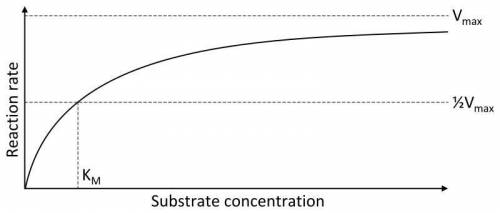
The rate of a chemical reaction depends on the concentrations of the reactants. let's consider the general reaction between a and b: aa+bb⇌cc+dd the dependence of the reaction rate on the concentration of each reactant is given by the equation called the rate law: rate=k[a]m[b]n where k is a proportionality constant called the rate constant. the exponent m determines the reaction order with respect to a, and n determines the reaction order with respect to b. the overall reaction order equals the sum of the exponents (m+n). for example, if m = 2 and n = 2 then rate = k[a]2 [b]2 and the overall reaction order is 2 + 2 = 4. the reaction orders are experimentally determined and usually not related to the reaction stoichiometric coefficients a and b. the reaction of ethyl bromide with sodium hydroxide, ch3ch2br(aq) + naoh(aq) ch3ch2 oh(aq) + nabr(aq) is first order in ch3ch2br and first order in naoh . if the concentration of ch3ch2br was increased by half and the concentration of naoh was quadrupled, by what factor would the reaction rate increase? express your answer numerically.

Answers: 2
Other questions on the subject: Chemistry

Chemistry, 21.06.2019 13:00, demetriascott20
How are ionic bonds formed and what is the attractive force within an ionic bond
Answers: 1



Chemistry, 23.06.2019 00:30, terryg4397
Fred is studying a substance that is made out of only one element. this means that
Answers: 1
Do you know the correct answer?
The rate of a chemical reaction depends on the concentrations of the reactants. let's consider the g...
Questions in other subjects:




History, 14.07.2019 07:30


Mathematics, 14.07.2019 07:30





![rate = k[A]^{m}[B]^{n}](/tpl/images/0332/6313/54dad.png)
![rate_{i} = k[CH_{3}CH_{2}Br]_{i}[NaOH]_{i}](/tpl/images/0332/6313/28534.png)
![[CH_{3}CH_{2}Br]_{f} = 0.5[CH_{3}CH_{2}Br]_{i} + [CH_{3}CH_{2}Br]_{i} = 1.5[CH_{3}CH_{2}Br]_{i}](/tpl/images/0332/6313/090b7.png)
![[NaOH]_{f} = 4[NaOH]_{i}](/tpl/images/0332/6313/794bb.png)
![rate_{f} = k[CH_{3}CH_{2}Br]_{f}[NaOH]_{f} = (1.5[CH_{3}CH_{2}Br]_{i})(4[NaOH]_{i}) = 6rate_{i}](/tpl/images/0332/6313/2fd8d.png)





